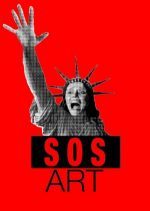“One candle can light thousands of matches,” says Adam Clark, “and we have to let the light grow.”
Clark, a doctor in divinity and an associate Professor in the Theology Department at Xavier University, uses his Christian faith, along with his teaching and writing, to touch his students’ and other peoples’ lives; contribute to the Kingdom of God on earth by promoting justice, solidarity with the marginalized, the oppressed and the poor; and keep the light expanding and growing. Clark’s influence is mostly through his academic activities, the courses he teaches, the lectures he gives to varying audiences, the books and articles he writes.
Born in Newark, NJ, he grew up in Syracuse, NY, in a religious family, and attended regularly, with his parents, a liberal multiracial Episcopalian church. His faith from the start was a quiet one, not the proselytizing type, but one more about character formation. And from a young age, he had already many unanswered questions about the meaning of religion and the significance of life.
For college he attended Colgate University, a small liberal art college in Hamilton, NY, where, thanks to his mentors, mostly African American priests, he became increasingly interested and involved in religion. These latter exposed him to Liberation Theology of which he had not heard before, helped him learn historical criticism, and connected his faith to the liberation of the oppressed, in particular that of black people. It was at a time when many social and political movements and events around the world and in the United States were dealing with the black “Struggle.” And the antiapartheid movement in South Africa, the Hip Hop and Afrocentric movements in the United States, and the emergence of prominent black leaders such as Louis Farrakhan and Jessie Jackson on the US national scene, had a great influcence on him.
“In college, I did not need anymore to put my mind at the door in order to believe with my heart,” says Clark. “I learned how to synthesize and put a more rational approach to my religious faith.” “Being black and seeing so many wrong relationships due to race, Liberation Theology provided me with a framework to think, analyze and imagine what right relationships could be and how to get to them,” he adds.
Clark then started pursuing his spirituality rather then just an institutionalized faith, affirming it in his humanity, aiming at becoming more fully human, in tune with others, and this in the name of Jesus. He got also more involved in his school community, participating in various social justice activities.
“I joined the gospel choir, connecting to others; and started a black male reading group, discovering seminal books we were not taught in class,” he states.
The chosen books related primarily to black issues and included, among others, Steven Biko’s I Write What I Like, reflecting on the need for South African blacks, in order to be liberated, to unite and break their chains of servitude; The Wretched of the Earth by Frantz Fanon, the Afro-Caribbean revolutionary psychiatrist, addressing the dehumanizing effects of colonization; and Price of the ticket, James Baldwin’s commentaries on race in America.
Clark also served as Residential Advisor for an African American-themed dormitory, catering for individuals interested in African American history and culture. This required on his part weekly programming and the planning of presentations and discussions relating to black matters. Working at the same time for the college cultural center, he was busy all the time.
Clark’s religious experience during college was decisive in the orientation of his faith toward social justice. He saw it through the lens of Dr Martin Luther King Jr. and through the eyes of people ostracized all over the world. It was also instrumental in his choice of pursuing theological studies at Colgate Divinity School, a small Baptist-orientated seminary, in Rochester, NY. The years Clark spent there were mostly focused on academics, working hard to learn and to earn good grades, both for his graduation with a master in divinity degree and for his further enrollment in a doctorate program at the ecumenical Union Theological Seminary (UTC) in NYC.
At UTC Clark was taught and mentored by influential and renowned Professors such as James H.Cone, the father of black theology. Cone had formulated a theology of liberation from within the context of the Black experience of oppression, and had interpreted the basic essence of the Gospels as Jesus’ identification with the poor and oppressed, and the resurrection as the ultimate act of liberation. This resonated very much with Clark’s ongoing understanding of Christianity and he wanted to learn more about the social justice militant movements going on at the time. He joined many Marxist groups, Malcolm X grassroot groups, Hip Hop and other underground movements going on in NYC, and participated in their membership and public activist meetings. Two issues were of particular interest then, the fight against white supremacy and the fight against agressive capitalism; and how to resist them and come up with alternatives to them. Globalization, having already started, Clark perceived it as a globalization of capitalism and not of the good for everyone, also as suppressing solidarity movements across the globe, such as, for instance, between Palestinians and Blacks who, according to him, had a lot in common.
Clark decided to use his divinity degree for the classroom instead of for ministry within the church. He accepted a teaching position in the Theology Department at Xavier University in Cincinnati where he delivers courseson Black Theology, Jesus and Power, Faith and Justice, Religion and Hip Hop. His aim is to educate students in both the service of faith and the promotion of justice, and to light up candles wherever he can. This is where he sees his main contributions.
“Teaching and doing the work of scholarship takes a lot of time,” he says, “and one cannot, at the same time, engage the world by leading movements or being out on the streets, immersed in grassroots…”
Clark also tries to introduce spiritual practices in the lives of his students, not only training them into academics. He would like them to discover contemplative traditions, get in touch with what’s happening inside them, develop their whole person and become better human beings. This would help them function more effectively in the world, using not only the intellectual but also the practical dimension of their Christian faith.
In the community, Clark has led his support to social justice movements as they present. He participated in Black Lives Matter seeing it as a faithful resistance to the unjust powers, and as a means to right the wrong relationships affecting the black community. He directed a 6 week contemplative group at the Hive in Northside (a place where community and contemplation meet), considering the role of the Inner Life in the struggle for freedom, through the writings of civil rights icon Howard Thurman. He also gave presentations at Abundant Community on slavery, poverty, consumerism and on the Jubilee idea and how it brings us to the intersection of the Bible and economics.
Being Christian, for Clark, is not only to accept something that happened 2000 yrs ago on the cross, but more importantly to focus on the entire life and message of Jesus, and to try to establish the kingdom of God on earth, making the conditions on earth reflect those in heaven.
“The good news Jesus gave the poor, the marginalized, the oppressed of this world, is that the kingdom of God is at hand, among us, and that we’re all invited to participate in it,” says Clark.
When asked about his religious affiliation he says that he is a Christian with no denominational loyalty. He right now attends the New Prospect Baptist Church in Roselawn where he responds strongly to the ministry of its pastor.
Clark sees his future in continuing to develop his intellectuel projects and to make a difference by his teachings and writings. He would like also to frame the debate about issues of religion and faith and disseminate his thinking and his message by all possible means. But what remains the most important to him is that he contributes to peace and justice on this earth, because, as he says, for him “Christianity is about healed brokenness and right relationships in God’s kingdom.”
A Spiritual text Adam Clark likes to quote "Do you remember in the Book [Christian Bible] Jesus and his disciples were going through the hills and there appeared in the turn of the road a man who was possessed of devils as they thought. In the full moon when the great tidal waves of energy swept through his organism and he became as ten men . . . screaming through the hills like an animal in pain and then he met Jesus on the road. And Jesus asked him one question: “Who are you; what’s your name?” and for a moment his tilted mind righted itself and he said, “That’s it, I don’t know, there are legions of me. And they riot in my streets. If I only knew, then I would be whole.” So the burden of what I have to say to you is, “What is your name— who are you—and can you find a way to hear the sound of the genuine in yourself?” There are so many noises going on inside of you, so many echoes of all sorts, so many internalizing of the rumble and the traffic, the confusions, the disorders by which your environment is peopled that I wonder if you can get still enough—not quiet enough—still enough to hear rumbling up from your unique and essential idiom the sound of the genuine in you. I don’t know if you can. But this is your assignment." Excerpts from "The Sound of the Genuine," Baccalaureate Address of Rev. Dr. Howard Thurman’s at Spelman College, Atlanta, GA, May 4, 1980.




April 12, 2018 at 8:19 am
The resemblance between blacks and Palestinians is an interesting one. Unfortunately though, although the racism against blacks seems to be reducing a bit (at least that is the impression we have these days), the Palestinians are nowhere better than before (and perhaps considerably worse!)…
LikeLike
April 12, 2018 at 1:53 pm
thank u pierre for ur comment; unfortunately racism, discrimination and violence are still prominent in our world and the peace and justice of the strongest equate most of the time with control and oppression of the weak, with no truthful consideration of their rights.
LikeLike